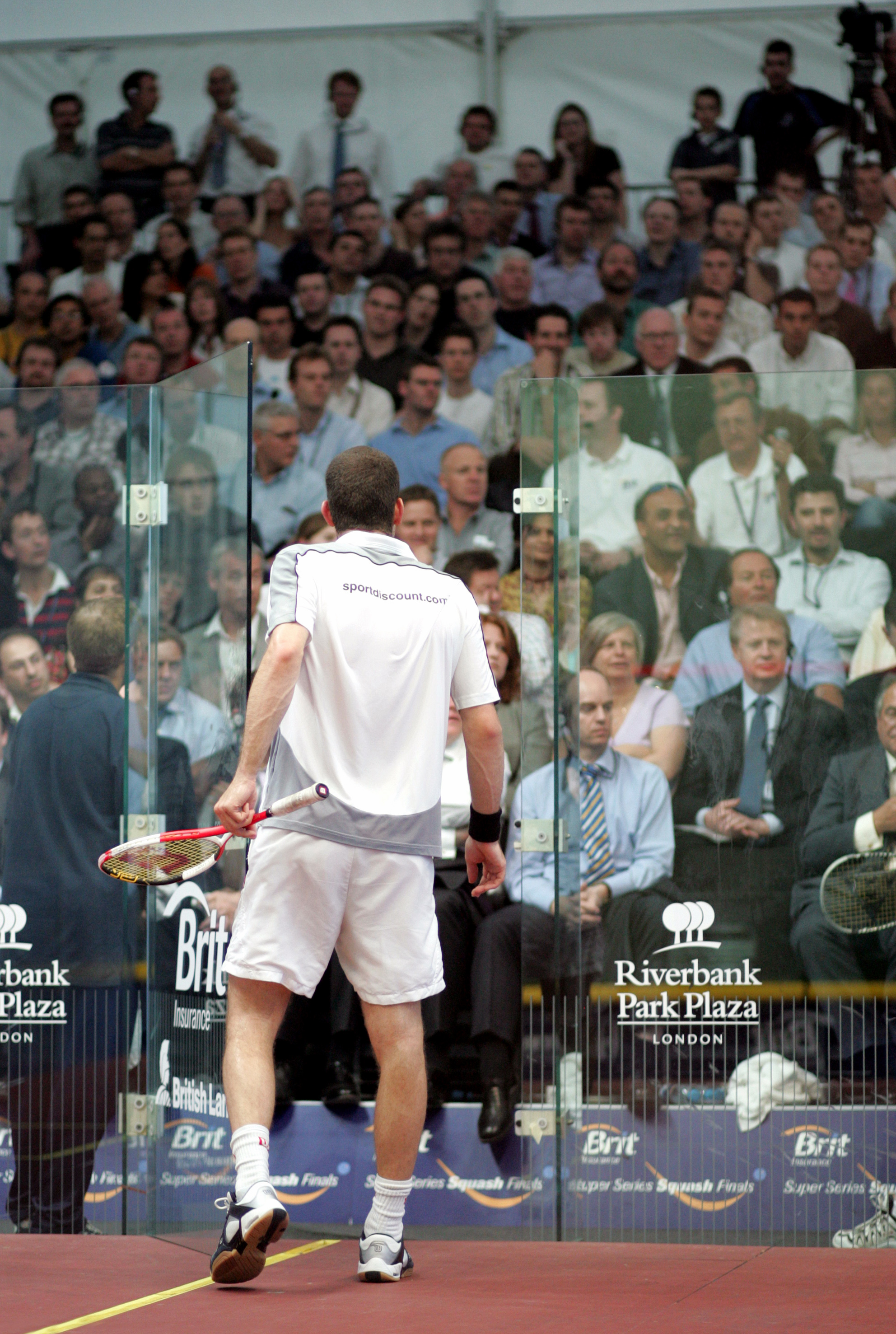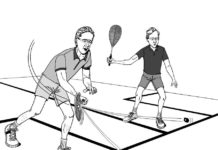By Rod Symington, WSF Referees and Rules Committee
That was the worst decision I have ever seen!” The speaker was a professional player in the Kolkata (India) Open in February, where I was assessing and mentoring referees. He had just come off court, having lost the game 11–3.

The “bad decision” in question had resulted in his being given a let, not the stroke he felt he deserved. In other words, he had not lost the rally, it simply continued after the let had been awarded. But even if he had not gained a point at that moment, he still lost the game 11–3. So what happened during the eleven points that he lost? Needless to say, the player ignored his own failings and concentrated solely on one questionable decision by the Referee.
This episode finally caused me to decide to write about something that has been bothering me for years: Why do players always blame the Referee when they lose—even when the match was totally one-sided? I once refereed a match in which the player lost 9-1, 9-0, 9-1. Near the end of the third game I awarded a no let against him. After the match he berated me for 45 minutes about my “outrageous call.” As if it had mattered.
This may be an extreme example, but it is not atypical of what happens every day on our squash courts: Countless players are convinced that the Referee caused them to lose the match. This is an absurd conclusion, because anyone who watches squash for any length of time draws three conclusions about the game:
First, most squash games are lost, not won. The losing player makes more errors and hits more bad shots than the winner. Next time you watch a squash match, keep a count of the errors made; you’ll see that I am right.
Second, the Referee very rarely has any effect on the outcome—one or two questionable decisions do not cause a player to lose (see above).
Third, good players know how to win despite the Referee’s decisions.
It is true that from time to time a Referee’s decision may influence the outcome of a very close game. But in my experience such occasions are few and far between. Whether you are playing to nine points or eleven, there are plenty of other points to be won or lost that are not subject to the Referee’s judgement. So you didn’t like the Referee’s call at 5-all? Do you ever ask yourself: “What happened during all the other rallies that I lost?”
Blaming the Referee for a loss is the coward’s way out. Instead of analyzing what really happened in the squash match and why it was lost, the player looks for a convenient whipping boy, and the most convenient one is the Referee. Such behavior is immature and does not lead to improvement.
There is no greater myth in squash than to say: “The Referee cost me the match.” Unfortunately, like many myths, it is tenacious and is not easily eradicated from the simple mind.





